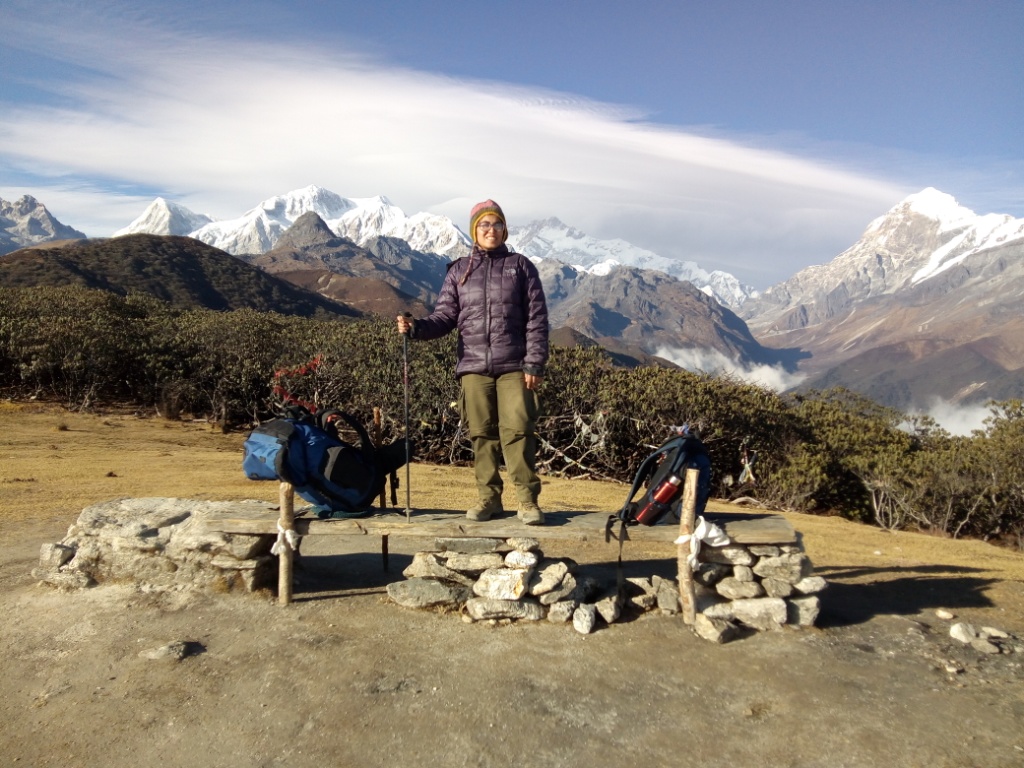A Project Biologist, an education officer, a writer, Paridhi Jain talks about taking up a career as a wildlife expert:
1. Please tell us about your journey. How did you opt for an offbeat career as a wildlife expert?
From an early age, I was fascinated by flora and fauna, and the majestic biodiversity in nature’s lap. This interest led me to work in Wildlife Institute of India as a Research Biologist. I have worked as Education Officer for Bombay Natural History Society in Asola Bhatti Wildlife Sanctuary. My passion for wildlife and forests started since my undergraduation. It led me to volunteer with Forest Department Udaipur and research and explore the jungles of Rajasthan. Eventually, I did my Masters in Zoology with specialization in wildlife biology with my dissertation work on Odonates. After my masters, I worked as a research assistant for Research scholar (Department of International Development) of Oxford University in Rural Rajasthan.

2. What is the definition of a naturalist?
I would say a naturalist is someone who loves nature and finds peace in it. Some practice it professionally and some keep it as hobby but being a naturalist is a duty of every human on Earth.
3. How would you define your role as a Project Biologist?
I consider wildlife conservation very important and urgent in the current scenario. Conservation has to be achieved with new and well-developed strategies. Research and advocacy are both important and interconnected tools to achieve the same. On spending some time in the field I have learned the importance of both research and awareness. Where research lets you know the scenario, advocacy and awareness campaigns share a part of your findings to bring about change.
4. Who can be a naturalist?
Anyone with a passion to conserve nature and wildlife can become a naturalist. Becoming a naturalist is an excellent career choice for those who connect with people and nature. Naturalists get to observe nature and communicate the importance of nature to people using various programmes and activities.
5. In most wildlife reserves, a naturalist is normally a local person, well versed with the flora, fauna and little scientific knowledge? What are the things that a naturalist ought to know practically and theoretically?
A naturalist or a wildlife communicator should know basic things about all the aspects of wildlife science and ecology like ornithology, herpetology, botany, entomology etc. It will be best to get a degree in environmental science, wildlife biology, forestry, botany or similar fields. Short terms courses in ecological sciences and environmental leadership skills can be advantageous to become a better communicator.
6. Is there an institute or government body which certifies naturalists in India?
I don’t think an organization is required which can certify naturalism but there are several NGOs and research institutions where wildlife science or ecology can be studied and practiced professionally. Some of them are Wildlife Institute of India, NCBS, BNHS, WWF, WTI, Centre for Wildlife Studies (CWS) and WCS. Apart from these some of the universities are offering master courses in Wildlife Sciences, Biodiversity conservation and environment management.
7. Can anyone take up this course at any stage in life?
Certificate and diploma courses from BNHS and WII can be taken at any age. But Master and Bachelor courses are taken at a prescribed age limit.
8. In India, vis-a-vis abroad, how lucrative is this profession?
I basically call this profession as wildlife conservation and not naturalism. I think a person should identify his or her own interests and passion. The profession has several dimensions like wildlife communication, wildlife research and Nature education and interpretation. It is not a money yielding profession; in most cases, wildlife researchers never earn an extremely handsome amount. It is for people who have patience and passion. However after patience and sincere devotion for some years wildlife professionals hopefully earn good salaries. Wildlife photography, documentation and communication in agencies like BBC and National Geographic is a dream for most.
9. Any material that you can recommend for people who want to take up this as a profession?
There are loads of books, field guides and online material available who want to broaden their knowledge. Some of the books can be useful such as Birds of the Indian Subcontinent (Grimett), Dragonflies of India (K.A Subramanian), Trees of Delhi (Pradip Krishan), Indian Mammals: A Field Guide (Vivek Menon), The Deer And The Tiger (George Schaller) and Snakes Of India (Romulus Whitaker)
10. What are the things to keep in mind when taking tours?
You can travel wherever you wish to go, snow peaks, Western Ghats, deserts or the arid landscapes of Gujarat. But tourists should always keep in mind that they don’t litter in the forest areas and don’t make unnecessary noises chatting and playing music. A naturalist should keep a record diary to field notes and if possible binoculars and a camera are a must-carry. Reading about the flora and fauna of the region where you are travelling will be an added benefit.
11. Which naturalists/wildlife lovers have inspired you?
Wildlife professionals who inspired me to take this profession are Steve Irwin and Sir David Attenborough. They are the ones who have always motivated me to take wildlife conservation seriously. Wildlife conservation is my ultimate life goal.
11. Where do you see this profession heading as the Earth is facing multiple environmental issues?
There are more and more people taking up this profession these days as compared to some years before. There is a lot of good wildlife research happening in the world but sadly it’s not properly communicated to the world. With the earth facing severe environmental issues the need of the hour is creation of a proper platform for wildlife conservation for the youth. Sadly, some of the wildlife photographers do not follow proper ethics for wildlife and are just in need of best shots which yield them money and awards.



11 thoughts on “Exploring the Wonders of Wildlife: Tips for Aspiring Naturalists”